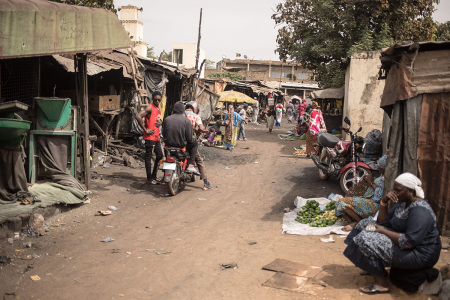ISIS-affiliated jihadists kill at least 40 civilians in northern Mali

An Islamic State-affiliated group has killed at least 40 civilians on suspicion that they were associated with rival al-Qaeda militants in an area in northern Mali, which is a hotspot of jihadist violence.
The killings took place in the Tessit area near the borders of Burkina Faso and Niger last week as France and its European allies announced they were pulling out their troops from the West African country after helping fight a jihadist insurgency for more than nine years, The Guardian reported.
There were “at least 40 civilian deaths in three different sites,” a civilian official was quoted as saying. “These civilians had been accused by one (jihadist) group of complicity with the other group.”
About 30 of the killings occurred in Tadjalalt village. The other deceased were from Keygourouten and Bakal villages, among others.
The Islamic State in the Greater Sahara, locally known as EIGS, and the al-Qaida-aligned GSIM group have been attacking local and foreign troops and fighting each other for territory in the area since 2020.
GSIM militants had visited the villages before EIGS fighters executed civilians.
The official explained, “When a (jihadist) group passes through a village, the one that comes later accuses the residents of being accomplices.”
In Mali, jihadi insurgencies led by groups linked to al-Qaeda and the Islamic State are also known for killing Christians and carrying out abductions for ransom and committing atrocities.
In June 2020, suspected Islamic radicals killed at least 27 people, some of whom were burned alive, in a series of attacks in three villages that advocates said were predominantly inhabited by Christians in Central Mali.
Local officials told Reuters at the time that attacks in the villages of Bankass, Koro and Tillé were carried out by armed men on motorcycles whom they believe to be jihadists that claim to protect Fulani herders from Dogon farmers.
Last June, a Catholic priest, Fr. Léon Douyon, and four other people were freed by their kidnappers in Mali.
Last April, the body of Beatrice Stockli, an Evangelical missionary from Switzerland, who was held captive by extremists in Mali affiliated with Al-Qaeda in the Islamic Maghreb since January 2016, was found.
Stockli was initially kidnapped in 2012 but was released 10 days later, after mediation led by neighboring Burkina Faso. The missionary left Mali after being asked to do so by her family. However, she soon returned even though the Swiss government warned her not to.
She was dragged from her home again in 2016 by armed men in four pickup trucks.
Mali is ranked as the 24th-worst country in the world for Christian persecution, according to Open Doors USA’s 2022 World Watch List.
“In northern Mali, churches were burned and Christians were forced to flee for their lives when Islamic extremist groups took control of the region (in 2012),” says the organization, which monitors persecution in over 60 countries.
“Though some Christians have trickled back in with police protection, there are areas where there are no Christians. The trauma lingers, and the threat of attack still hangs over Christians, making evangelistic activities especially risky. Such programs can draw the attention of jihadists, and Christian missionaries live under the constant fear of abduction.”
In Mali, it’s difficult to distinguish clearly between religious-based and ethnic-based violence, it adds.





















